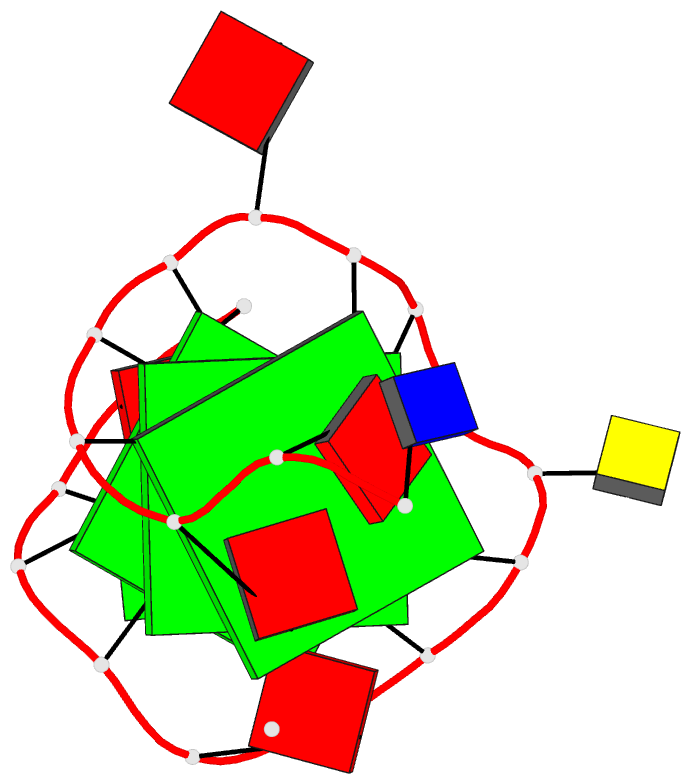Summary information and primary citation
- PDB-id
-
7wgw;
SNAP-derived features in text and
JSON formats
- Class
- DNA
- Method
- NMR
- Summary
- NMR solution structure of a cgmp fill-in vacancy
g-quadruplex formed in the oxidized blm gene promoter
- Reference
-
Wang KB, Liu Y, Li Y, Dickerhoff J, Li J, Yang MH, Yang
D, Kong LY (2022): "Oxidative
Damage Induces a Vacancy G-Quadruplex That Binds Guanine
Metabolites: Solution Structure of a cGMP Fill-in Vacancy
G-Quadruplex in the Oxidized BLM Gene Promoter."
J.Am.Chem.Soc., 144, 6361-6372.
doi: 10.1021/jacs.2c00435.
- Abstract
- Guanine (G)-oxidation to 8-oxo-7,8-dihydroguanine (OG)
by reactive oxygen species in genomic DNA has been
implicated with various human diseases. G-quadruplex
(G4)-forming sequences in gene promoters are highly
susceptible to G-oxidation, which can subsequently cause
gene activation. However, the underlying G4 structural
changes that result from OG modifications remain poorly
understood. Herein, we investigate the effect of
G-oxidation on the <i>BLM</i> gene promoter G4.
For the first time, we show that OG can induce a
G-vacancy-containing G4 (vG4), which can be filled in and
stabilized by guanine metabolites and derivatives. We
determined the NMR solution structure of the cGMP-fill-in
oxidized <i>BLM</i> promoter vG4. This is the
first complex structure of an OG-induced vG4 from a human
gene promoter sequence with a filled-in guanine metabolite.
The high-resolution structure elucidates the structural
features of the specific 5'-end cGMP-fill-in for the
OG-induced vG4. Interestingly, the OG is removed from the
G-core and becomes part of the 3'-end capping structure. A
series of guanine metabolites and derivatives are evaluated
for fill-in activity to the oxidation-induced vG4.
Significantly, cellular guanine metabolites, such as cGMP
and GTP, can bind and stabilize the OG-induced vG4,
suggesting their potential regulatory role in response to
oxidative damage in physiological and pathological
processes. Our work thus provides exciting insights into
how oxidative damage and cellular metabolites may work
together through a G4-based epigenetic feature for gene
regulation. Furthermore, the NMR structure can guide the
rational design of small-molecule inhibitors that
specifically target the oxidation-induced vG4s.





